When is Chinese New Year and how is it celebrated?
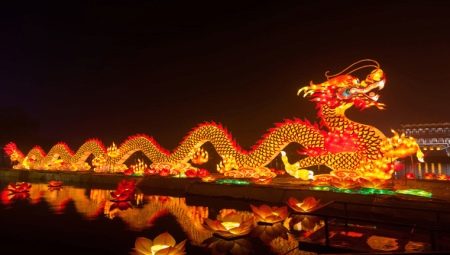
In China, as in many other countries, the New Year is considered one of the most important holidays. Therefore, they celebrate it noisily and on a grand scale. Despite the fast pace of life, the Chinese manage to devote time to traditional festivities and meetings with family and friends in a few days off.
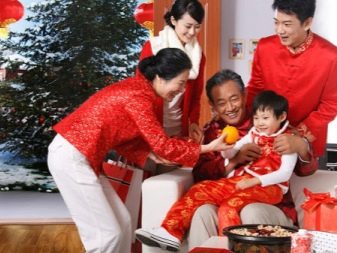
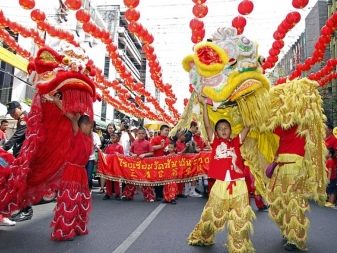
History
The custom of celebrating the New Year at the end of winter appeared in the Middle Kingdom in ancient times. Then the Chinese believed that at this time of year, Nian, a terrible monster with horns on its head, was attacking their cities. The peasants were so afraid of him that in winter they left their villages and hid in the forest and mountainous areas.
But one day, at the end of winter, an old man came to one of the villages. He promised the locals to help expel the terrible monster if he was allowed to stay in their village. One of the old women allowed him to spend the night in her house. And when Nian once again burst into the village, he discovered that a fire was burning in one of the buildings. When the monster tried to get to the entrance to the house, he was frightened off by the loud crackling of firecrackers.
This is how the local peasants learned that Nian was afraid of open fire and loud noises. Since then, the Chinese have annually decorated their homes with red lanterns and have held noisy celebrations to scare away evil spirits.
It is worth noting that since the 20th century, Chinese New Year has also been a modern Spring Festival. In this country it is known as Chunjie. On the last cold days of winter, locals meet with friends and have a good time in the company of loved ones.
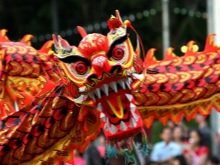
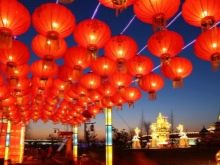
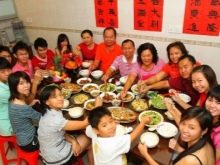
When does it start and how long does it last?
One of the main differences between the Chinese New Year and the European holiday is that it is not tied to a specific date. The day of the celebration is determined based on the lunar calendar. This date falls between January 21st and February 21st. For example, in 2020, the New Year was celebrated on January 25, and in 2021 - on February 12. Foreigners usually have to find out the timing of the celebration in advance. Especially if they want to attend this celebration live.
This holiday is celebrated for 15 days. The duration of the official weekend in China is 7 days. Such vacations allow the Chinese to have a good rest and get ready for the new working season.
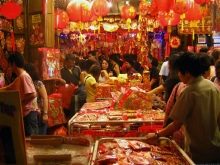
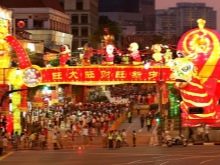
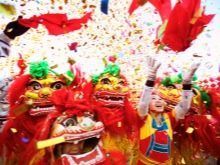
How do you prepare for the holiday in China?
Preparation for this event also plays an important role in celebrating the Eastern New Year. This process consists of several main stages. Let's dwell on the most important of them.
- Cleaning. One of the main New Year's customs is cleaning the home for the holiday. At this time, the Chinese are not just putting their house in order. They try to get rid of absolutely all unnecessary things. It is believed that by throwing away excess trash, the Chinese also get rid of old stagnant energy. Thus, they make room in their lives for something new and good.
- Home decoration. Having got rid of all unnecessary and unpleasant things, the Chinese begin to decorate their homes. The house is usually decorated with red decorative details. Lanterns are hung in the rooms, themed inscriptions and pictures consisting of complex paper patterns are glued. But the Chinese do not put up a Christmas tree. It is replaced with small trees. They are usually dressed up with dried fruits and citrus fruits. Traditional trays of bright orange fruit can also be seen in the houses. Lay them in a special way. All fruits are laid out in a circle. At the same time, there should be no more than 8 fruits on one tray. This number symbolizes infinity.
- Preparation of outfits. Traditionally, the Chinese celebrate the New Year in red dresses. It is very important that all clothing chosen for the celebration is clean and well ironed.
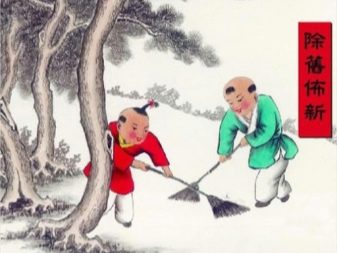
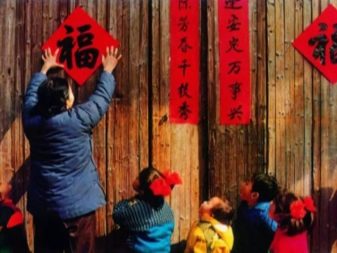
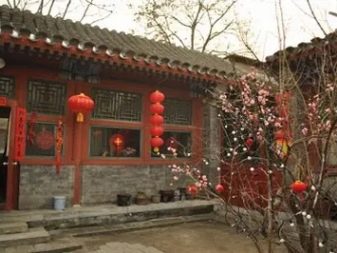
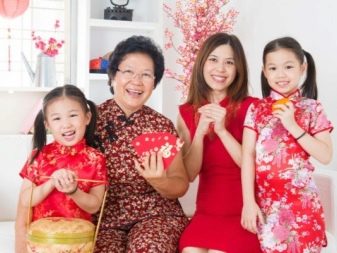
During the holidays, the Chinese also prepare a lot of delicious food. Most often, locals serve pork, chicken and duck dishes, as well as various sweets. There are several traditional delicacies to try for anyone celebrating Chinese New Year.
- Spring rolls. This dish is usually prepared in southern China. In shape, these rolls are similar to bars of gold. Therefore, such a treat symbolizes success and prosperity. The dough for it is prepared from flour, salt and water. Stuffed with mushrooms, pork or vegetables. Ready-made spring rolls are lightly fried in a skillet until golden brown.
The dish reminds many of the classic Russian pancakes.
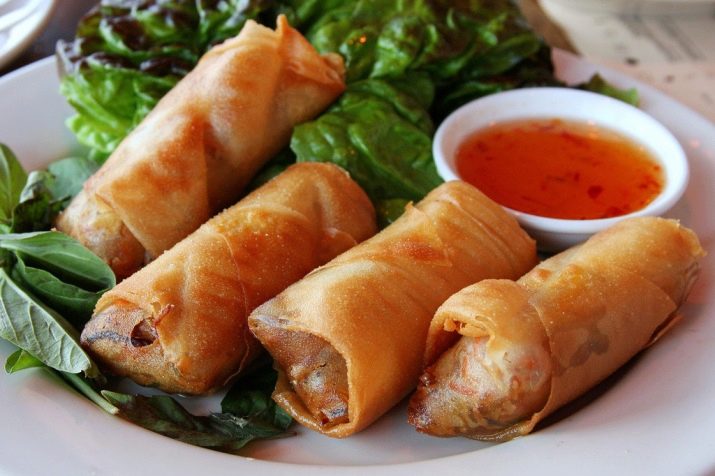
- Jiaozi. This delicacy is especially popular with the people of North China. Very often, coins are put into these delicious dumplings. Those who manage to pull out a delicacy with such a "treasure" are considered lucky. The whole family is preparing dumplings. Minced meat, cabbage or any other vegetables are used as a filling.
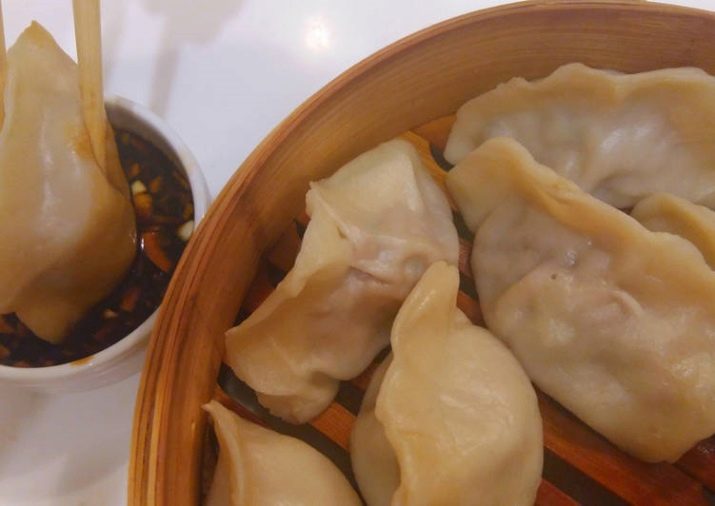
- A fish. In Chinese, the word "fish" is pronounced in the same way as the word "abundance." Therefore, fish is prepared for the main holiday of the year in almost every family. Carp, catfish or crucian carp are served to the table. The fish is stewed, fried or steamed. It is always served whole.
The cut fish is a symbol of a family that is about to disintegrate.
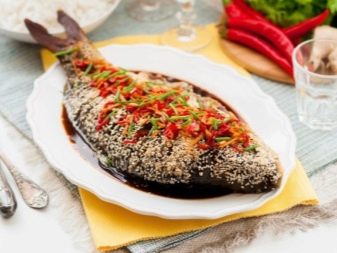
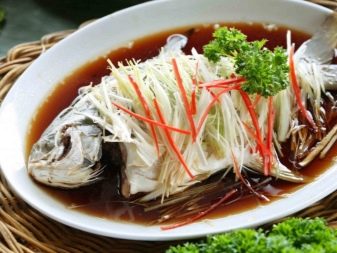
- Chick. Another tasty and satisfying dish that the Chinese usually prepare for the New Year is chicken. He is a symbol of rebirth and renewal. This dish is also served whole. The oldest members of the family eat it first. But the wings usually go to young people.
It is believed that this helps them to succeed in life and quickly fly out of the family nest.
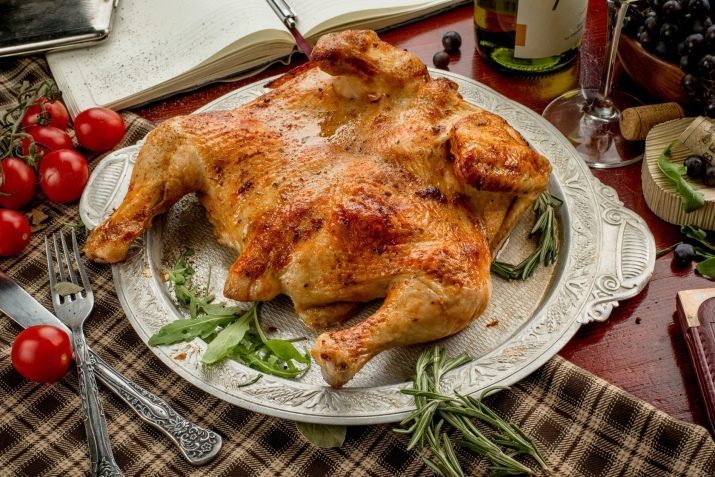
- Nyangao. This word refers to rice cakes or muffins. In Chinese, the name of this dish consists of two characters.One of them is translated as "year", the other - as "high". Serving this dish to the table, a person wishes all his guests to reach new heights in the new year. Classic tortillas have a light sweet taste.
It is customary to cook all these dishes in the company of relatives and friends.

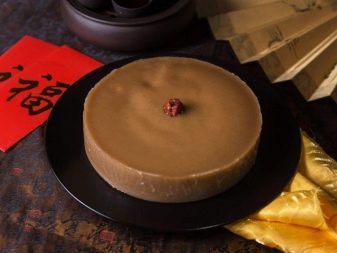
How is it celebrated day by day?
As already mentioned, the New Year in China lasts 15 days. Each of them has its own traditions.
First
Celebration according to the Eastern calendar begins with a noisy family party. On this day, the Chinese prepare a grand dinner and gather relatives and friends at the table. They eat and drink a lot, and they also light bamboo sticks and fire salutes. It is believed that the brighter and louder the holiday is, the happier the whole next year will be.
Since people in China highly value family ties, it is also customary to visit the graves of deceased loved ones on this day. This is usually done in the afternoon, even before the start of the festivities. Traditionally, paper money and other sacrifices are burned at the cemetery.
It is believed that after the paper burns out, this offering will go directly to the person to whom it was intended.
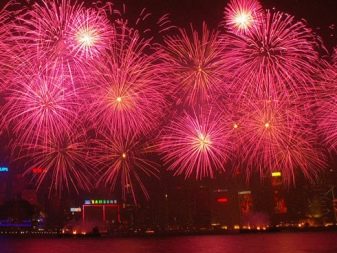
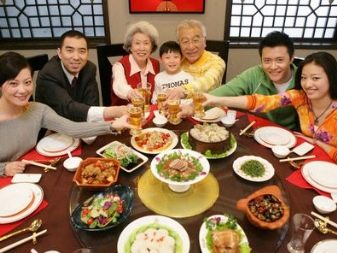
Second
It is customary to meet the next day of the new year with prayer. Each person asks for himself and his loved ones what they need most: health, money, prosperity, longevity or love.
Beggars on this day can come to visit rich people and ask for food and alms. It is not customary to refuse such requests.
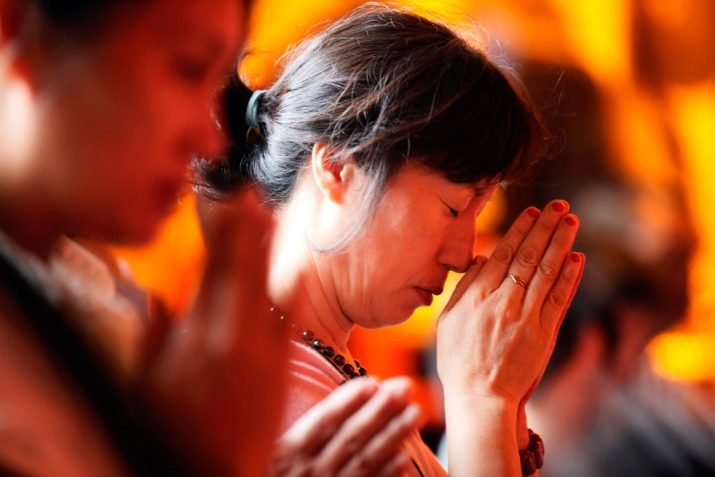
Third
It is customary to spend this day with relatives. Many Chinese people at this time go to another part of the country in order to meet with those whom they have not seen for a whole year and to congratulate them. These family gatherings strengthen relationships between people.
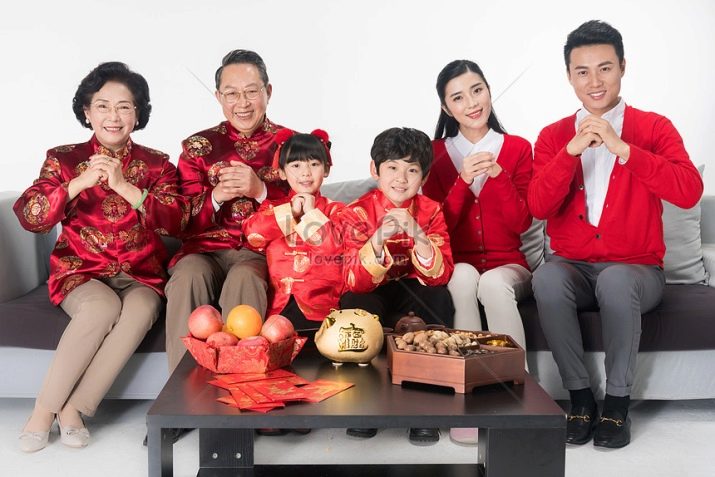
Fourth
Beginning on the fourth day of the new year, many Chinese are ending their weekends. During this time, many popular companies are re-launching their work. At the same time, the spirit of the holiday is still preserved. Colleagues on the first working day exchange congratulations, give each other symbolic gifts.

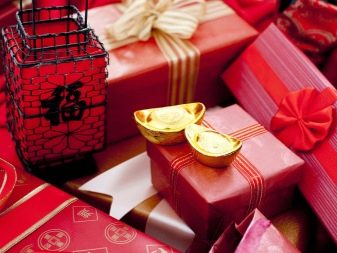
Fifth and sixth
The next two days of celebration are dedicated to prosperity. At this time, the Chinese are actively launching fireworks. With noisy fun, they try to attract good luck, which will accompany their affairs for a whole year.
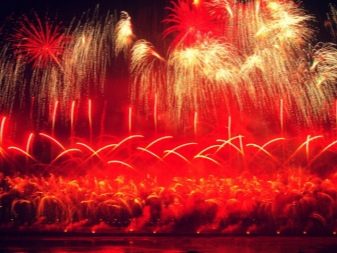
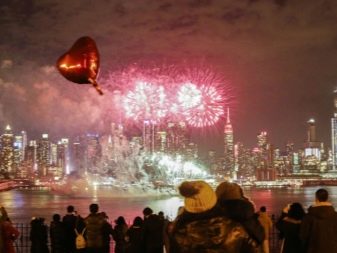
Seventh
On this day, it is customary to cook Yu-Shen, a special salad. Each ingredient in this dish has a special meaning:
- raw fish symbolizes wealth and abundance;
- carrots portend great luck;
- grapefruit and red pepper attract wealth to the house;
- sesame seeds symbolize success at work;
- green radish allows you to preserve youth for a long time;
- vegetable oil makes life easier and makes money pour into the house like a river.
You need to cook such a dish in a large company. Each person is responsible for cutting and preparing an individual ingredient.
Before mixing the dish, guests add their ingredient to the bowl, while making a wish. The salad is then mixed and eaten.
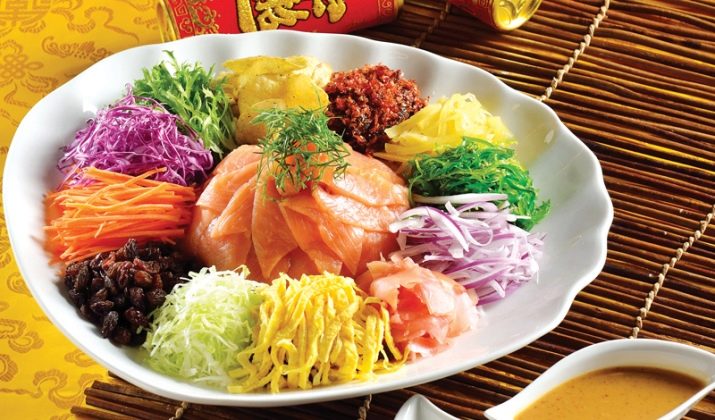
Eighth, ninth and tenth
These days, most Chinese people celebrating the New Year are already returning to work. But in the evenings, they continue to arrange festive gatherings with family and friends. Many people go to the temple every evening in order to light smoking candles there, make wishes and pray.
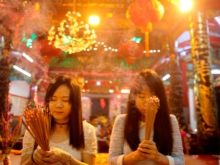
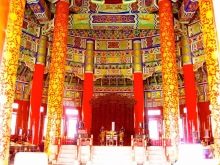
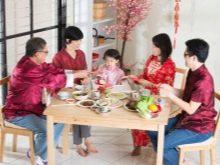
Eleventh and subsequent
The eleventh one stands out from the whole series of holidays. It is considered the day of the son-in-law. On this day, each father of the family tries to arrange a noisy holiday for the husband of his daughter.
The next three days pass fairly calmly in China. People are resting and getting ready for the main event - the holiday of lanterns. It comes on the 15th day of the new year. Several interesting traditions are connected with this holiday.
- Solving riddles. Lantern owners attach pieces of paper to them, on which riddles are written. If a person knows the answer to it, he rips off a piece of paper and receives a small gift in exchange for it.
- Eating Yuanxiao. These little dumplings are made with rice flour and stuffed with date puree, walnuts, or sesame sugar. Dessert is served fried or boiled. They say that a family who tasted this dish together will live happily and happily all year round.
- Lantern exhibitions. Thematic exhibitions are held right on the city streets. Lanterns for them are made in the form of various animals, birds, dragons and unusual figures.
In addition, a large number of theatrical performances and concerts are organized on this day. People at this time try not to stay at home. They take to the streets with friends and family to admire the fireworks and beautiful lanterns.
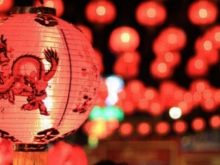
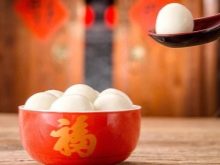
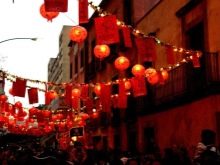
What shouldn't be done?
It is customary to celebrate the Chinese New Year noisily. During the onset of the holiday, fireworks are thundering everywhere and bright lights are shining. It is believed that on the night before this date, a person should not sleep. This is associated with an old belief. They used to think that on the last day before the start of the new year, all evil spirits go hunting and attack those who did not bother to scare them away. In order not to incur trouble, people spent this night in the company. Nowadays, few people believe in spirits. But the tradition not to sleep on this day has survived.
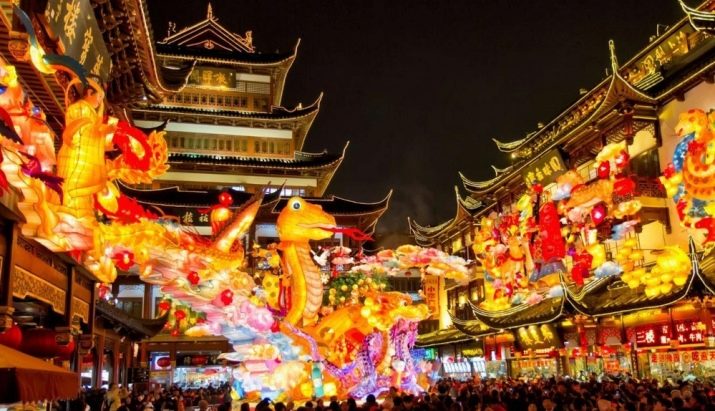
There are other prohibitions that the Chinese adhere to in the early days of the new year.
- Before the holiday, the Chinese do not advise buying new things. However, it is rather difficult to do this at the beginning of the year. Most shops are usually closed during the first days of the celebration.
- It is not recommended these days to have a haircut. This can lead to setbacks and loss of money in the first half of the year.
- Traditionally, cleaning is not allowed in the first days of the new year. Therefore, when preparing for the holiday, it is worth taking the time to cleanse your home. The tradition is connected with the fact that according to legend, it is on New Year's Eve that the gods bring good luck and happiness to families, which remain on things in the form of dust. In order not to frighten off this luck, you should not start cleaning immediately after the end of the holiday.
- During the festive feast, the Chinese rarely talk about the year that is leaving. During the holiday, they prefer to discuss future plans. It is believed to also help attract good luck.
- When choosing an outfit to celebrate the New Year, you should give up things in black and white. The fact is that black for the Chinese is the color of failure, and white is a symbol of mourning.
- The number 4 is also associated with death among the Chinese. Therefore, they try to bypass it in every possible way.
- In the first days after the holiday, you should also not use any sharp objects. Otherwise, there is a risk of cutting off your happiness.
- Pears should not be served with the festive table. It is believed that this will lead to parting with one of the guests present.
- On New Year's holidays, it was previously not customary to visit the wife's relatives. After the wedding, the bride traditionally moved to her husband's house. She also celebrated the New Year with his family. Therefore, it is now believed that a trip to the house of the wife's parents can bring trouble to a young family.
However, the majority of modern Chinese consider these signs to be the same relic as various New Year's fortune-telling.
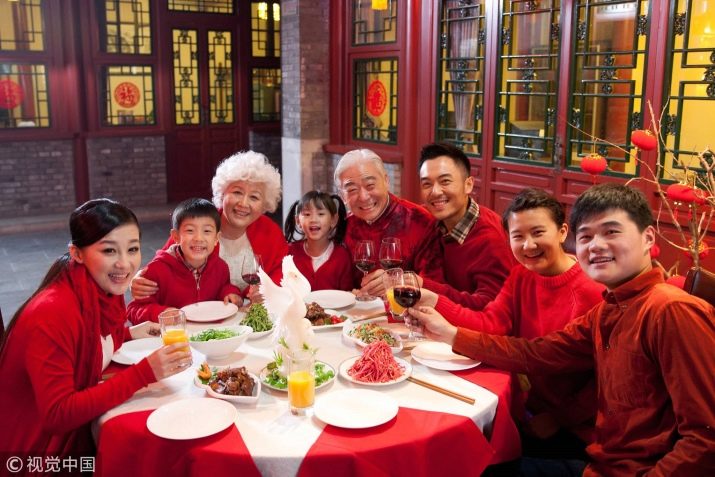
Interesting Facts
A large number of interesting facts are associated with the celebration of the Eastern New Year.
- In addition to traditional gifts and sweets, the Chinese these days give each other two small tangerines. The essence of this ceremony is that the phrase "a pair of tangerines" in Chinese sounds exactly the same as the word "gold". Therefore, the person who gives such a gift to a loved one wishes him wealth and great success in the coming year. Many inhabitants of the country exchange tangerines at this time.
- Most often, a Chinese who goes to visit on the New Year gives his friends and loved ones money as a gift. They are certainly presented in a red envelope. The tradition of giving each other Ang Bao is so popular that in many companies, this is how bosses present New Year's bonuses to their subordinates.The same envelopes are usually given to all children who come to visit during the New Year holidays.
- Each year in the Chinese calendar is associated with a specific animal. Each of them has its own signs.
- Chinese New Year is an important family holiday. Therefore, these days, many single people, in order to avoid unnecessary questions from relatives, "rent" a soul mate for a while.
- Many foreigners pay attention to the fact that almost all Chinese people often speak too loudly. Such "bad manners" of the inhabitants of the eastern country is understandable. The Chinese language is very difficult. Many hieroglyphs in it are very similar to each other. And in order for all the words to be understood correctly, some of them must be pronounced louder than usual. This is exactly the case with wishes. Shout them out loud and clear. In this case, they will definitely come true in the near future.
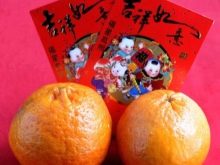
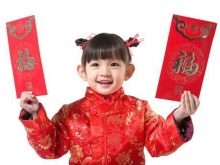
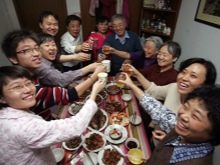
Eastern New Year is a special holiday with its own unique traditions. It will be useful to learn about them for everyone who is interested in oriental culture or planning to visit one of the countries where this event is celebrated especially noisily.








